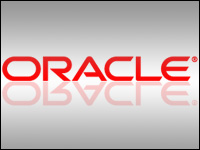
Oracle has released Contact Center Anywhere 8.1, an application that builds on its acquisition of Telephony@Work, an on-demand provider of IP-based softwareinfrastructure for hosted contact center services, made exactly a year ago.
Its CallCenterAnywhere was a multichannel contact center application that provided an out-of-the-box alternative to the custom programming and systems integration typically necessary in the contact center environment.
Telephony@Work provided much of the functionality in earlier Siebel OnDemand Contact Center applications through an OEM (original equipment manufacturer) deal.
Evolving Out of the Box
The result of Oracle’s product integration, Oracle Contact Center Anywhere 8.1, is a multimedia IP (Internet protocol)-based contact center app that integrates such channels as calls, IVR (interactive voice response), e-mail, voicemail, fax and the Web with Oracle’s database, explained Mike Betzer, vice president of CRM (customer relationship management) strategy at Oracle.
Essentially, what Oracle has done is link the telephony layer to the CRM application — a task that has not been traditionally easy to master. Other providers of similar functionality include Onyx, Kana, FrontRange and best-of-breed vendor Astute Solutions.
Oracle’s earlier contact center applications provided integration to a certain degree, Betzer told CRM Buyer. “What we have done with this version, by contrast, is a much deeper integration running on Oracle 10g database and the Oracle app server.”
Oracle Contact Center Anywhere 8.1 runs on the Oracle technology stack, including Oracle Database 10g and the Oracle Fusion middleware that has been developed thus far for 10g and the upcoming 11g application.
Oracle invested substantial time and resources to improve the user interface and incorporate reporting analytics into the application, according to Betzer.
“Basically, we have spent the last year ‘Oracle-izing’ the product,” he remarked.
“If someone wants to set up routing, interaction, voicemail, e-mail routing rules, or chat infrastructure — anything, basically, regarding how to manage the communication — it can be done using the UI,” he said.
Designing Contact Center Anywhere
Essentially, Oracle has broken out the chores a user interface typically performs in the application through the following design elements:
- A new Interaction Manager graphical interface that displays information and controls relevant to the agent’s current context, such as by type of channel or customer. This feature also makes it easier to handle multiple contacts and channels simultaneously.
- The Supervision Manager interface gives supervisors tools for real-time monitoring, whisper coaching and traffic monitoring. It also provides semi-customizable displays that allow supervisors to create special client views of agent activity, workgroup effectiveness, alarms and service levels.
- New advanced controls enable outsourcing providers with multiple clients to better manage simultaneous campaigns by partitioning the data and processes of each customer.
End Goal
The business case for Oracle Contact Center Anywhere 8.1 is balancing the need for consolidated communications with the conflicting reality of the separate business systems that are ubiquitous in most enterprises, according to Michael DeSalles, strategic analyst with Frost & Sullivan.
“I believe that with this product in their arsenal, Oracle is attempting to empower companies both large and small to consolidate communications-related IT resources across locations on common, shared infrastructure — such as service providers — with technology that uniquely preserves local control for autonomous business units,” he explained to CRM Buyer.
At the same time, Oracle is attempting to meet this goal without the heavy capital outlays for traditional systems, while still providing the robust multichannel and integration features that today’s contact centers need to be effective, DeSalles added.
“What I find impressive in Oracle Contact Center Anywhere is its multi-tenant architecture, and support for further ‘in-tenant’ partitioning; the carrier-grade scalability and reliability; and the comprehensive and integrated full suite contact center applications,” DeSalles said.






















































